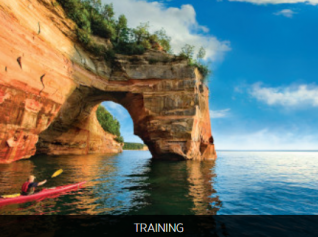Tourism Crisis or Hazard?
The word CRISIS has been often used in relation to the many challenges which the global tourism industry has faced in recent years. However, it is worth a note of caution that not every “crisis” covered by the media is indeed a real crisis.
The most elementary skill of tourism crisis and recovery management is the ability to make and communicate the distinction between a crisis which requires a specific set of responses and a hazard which in most instances can be avoided by the tourist.
A tourism crisis is an event or a set of circumstances which severely undermines the marketability or reputation of a destination or tourism product or service”. For example: –
The 9/11 attacks in 2001 severely undermined traveller’s willingness to fly commercial airlines;
The Indian Ocean tsunami severely undermined tourism to affected areas; and
The SARS outbreak of 2003 created a fear of travelling to and via SE Asia and Hong Kong. Terrorist attacks targeting tourists in Bali in 2002 and 2005 severely undermined tourism to Bali for months after each incident.
These events fall within the definition of a tourism crisis. In all cases the threat posed by crisis events impacted directly on tourists and their perceptions of the affected destinations or in the case 9/11 their attitudes to flying.
Crisis events generally affect people in a random and unpredictable fashion and require a powerfully co-ordinated response from the government destination marketing authority and the allied resources of tourism and hospitality industry of the affected destination to rebuild reputation and market confidence. In the case of 9/11 IATA enacted a series of security upgrades worldwide to address security concerns of airline passengers worldwide.
A tourism hazard is an established, known and limited threat which is usually avoidable for tourists. For example: –
Many cities have areas in which are known to have a high crime rate;
Some countries have identifiable regions of civil or politically motivated conflict;
Severe weather is known to occur at specific times of the year;
Some destinations have specific disease risks; and
Swimming in tropical waters filled with crocodiles or poisonous marine life is an avoidable hazard.
Overwhelmingly, tourist hazards are predictable dangers and as such can usually be avoided by visitors.
Effective destination management and marketing should proactively identify and warn tourists about hazards, but there is some understandable reluctance among tourism marketers to do this. After all, who wants to place negatives in front of the consumer? Conversely, confining potential threats to the fine print actually increases the risk of a predictable and avoidable hazard becoming a crisis.
Safety is now one of the prime concerns of tourists and a major consideration in their choice of destination and holiday product and while good marketing clearly accentuates the positive, identifying potential threats and avoidance measures heightens the credibility of the destination marketer and instils confidence among travellers that they are dealing with an host organisation, which is genuinely concerned for their safety.
This build this most important of aspect of customer relations, trust.
Commentary by David Beirman- Director Struan & Associates
 United Kingdom
United Kingdom United States
United States Asia Pacific
Asia Pacific












































EU airports bring back 100ml liquid rule
CLIA: Anti-cruise demos could cause itinerary changes in Europe
Co-pilot faints, easyJet flight issues ‘red alert’
Dozens fall ill in P&O Cruises ship outbreak
Woman dies after getting ‘entangled’ in baggage carousel